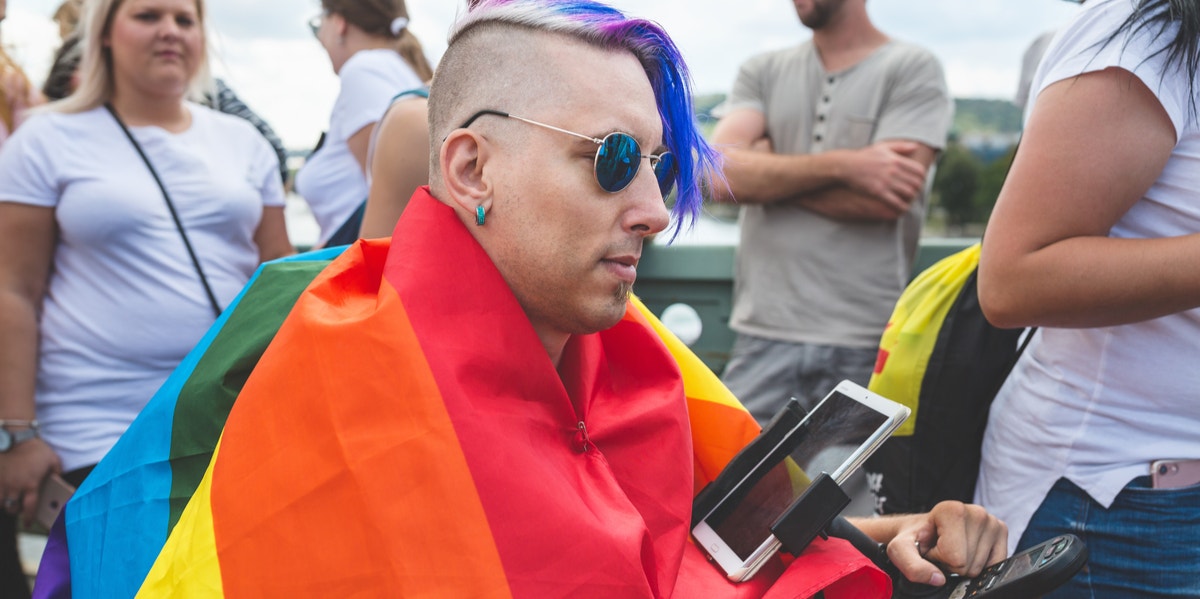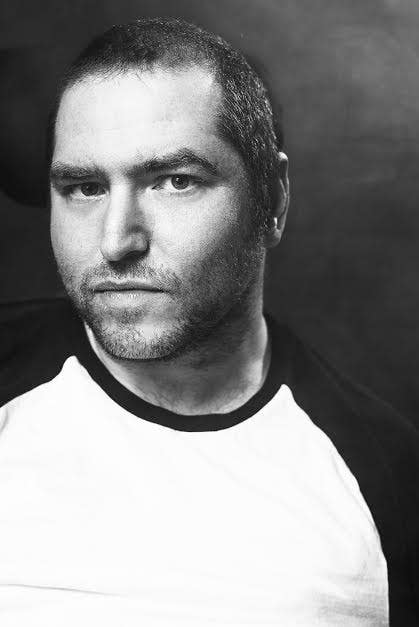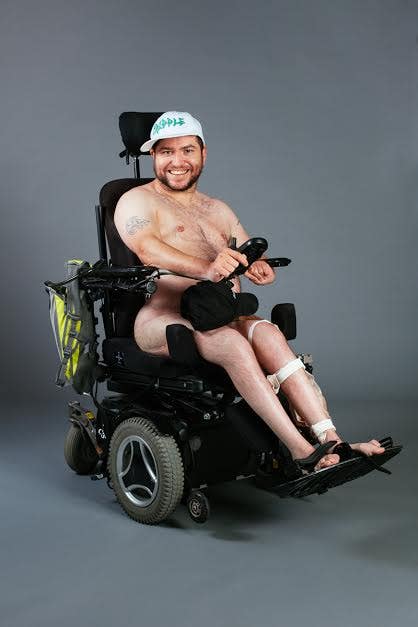I'm Queer, Disabled & 100% Sure I’ll Be The Best Sex Of Your Life
These two words — sexuality and disability — aren't mutually exclusive.
 lermont51 / Shutterstock
lermont51 / Shutterstock Online dating has transformed how our society connects with each other. With a click to the left or a swipe to the right, we can decide whom we spend our time and our bodies with. Tinder, Grindr, and the like have truly changed the game in how we court one another.
As a queer man with disabilities, I have had an interesting relationship with these platforms. On one hand, these apps make everyone accessible to me. I don't have to travel into the city in the hopes of meeting a mate, only to discover that the venue is inaccessible to me as a wheelchair user.
Instead, I can just point and click — it's almost too easy. This quick, accessible, and digital dating comes with its own unique challenges when one is sexy and seated.
One of the challenges that I'm often faced with is the disclosure of my disability. How do you tell someone that you are a wheelchair user (an identity that is fraught with its own misconceptions and notions), while also enticing them to make out with you? That is the question I'm left to answer.
While I'm always worried that my disclosure of disability might deter you — fearing the moment when our conversation goes radio silent after highlighting my handicap — I also love the fact that these applications allow me the opportunity to put my disability on display.

Photo: Author
Thanks to technology, I can let you know from the first click that I'm different from all the rest by showing you why my disability is one of my best features. Think about it: How many times have you scrolled through profiles, each with the same generic opener about how they're "after something real" or just want some fun, but nothing too complicated?
And then they stumble onto my profile... I love creating profiles and being active on sites like Squirt.org because by doing so I'm able to own my identity as a queer disabled man who is overtly sexual.
These two worlds that aren't ever supposed to come together — sexuality and disability — are melded together with nothing to hide. Every profile picture I choose tries to show my wheelchair, my body.
This is so important because we need images that show the disabled body being sexualized, and these sites allow me to show you my scars, my scissored legs, and my curved spine as all parts of my package.
Along with the images, I like playing with the text in my online profiles to discuss the delectability of my profile. I talk about my "big joystick" and how I need a sidekick, or that I have my own wheels. I let my potential playmate know that I understand the fact that I may be their very first lover with a disability, but that they'll not want anything else after that. These quips may be playful, yes, but they are extremely important to me.
By writing it down in a text box for guys to see, read, and process, I continually remind myself that it's OK for me to be this way — queer, disabled, and confident in who I am, and what I can offer in the bedroom.

Photo: Author
As with every dating/sex app, I have been ghosted and ignored once I disclosed my disability. I have been met with awkward questions about my ability to "get hard" or "top." I have been told that my wheelchair "wasn't a dealbreaker" as an opening line as if that's somehow meant to entice me or put me at ease (it definitely didn't).
Even though this happens more often than not on these applications, the partners that have clicked on this disabled person have left with a new understanding of what the reality of sex and disability is actually like, and they definitely left satisfied and smiling.
Most importantly, though, these apps and sites force me to be myself every single time, and what could be sexier than that?
Andrew Gurza is the Founder/Co-Director Of Deliciously Disabled Consulting, where he strives to make disability accessible to everyone within pop culture and intersectional communities.

